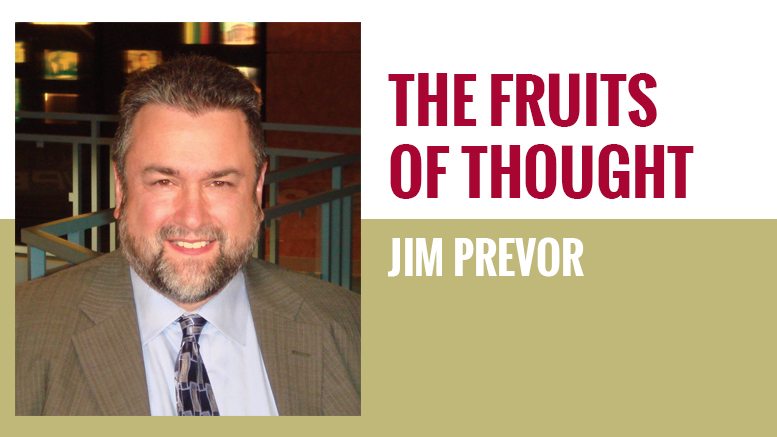Trump Presidency Needs Big Picture Industry Perspective
December 1, 2016 | 3 min to read
Industry-led government relations often emphasize specific concerns, neglecting broader impacts. President-elect Trump's initiatives on global trade and immigration pose challenges for industries despite a rising stock market. The demise of the Trans-Pacific Partnership disappoints those seeking Asian export opportunities, while his protectionist stance reflects a desire to reclaim American sovereignty. Ultimately, the success of America matters most to industry leaders, and if prosperity rises under Trump, it may surpass narrow interests, though future outcomes remain uncertain.

 One of the most interesting facets of industry-led government relations programs is because they almost always focus on particular industry concerns, they often fail to deal with the bigger picture.
One of the most interesting facets of industry-led government relations programs is because they almost always focus on particular industry concerns, they often fail to deal with the bigger picture.
So President-elect Trump’s big initiatives on global trade and immigration, if enacted, are going to cause trouble for the industry. On the other hand, as of the date of this column, the stock market is up 4.5 percent since the election, with the Dow breaking the 19,000 barrier for the first time. The S&P 500 had a market cap before the election of about $20 trillion, so a 5 percent increase means a trillion dollars in wealth was created – more if you add in broader indexes.
Of course, it is never so simple… bonds are down on fears of more inflation. But the point stands. Although we may think our specific industry concerns are key, in most cases, it is the overall success of the country that will matter more to industry executives.
Of course, the short-term can be very difficult. In the UK, the very legitimate industry concerns over Brexit are, to a large extent, the outgrowth of years of doing business on the assumption of a free European Market. So British growers who invested in say, Spanish growing operations, are used to the idea of being able to move farm and processing equipment back and forth with ease as the U.S. industry does between Salinas and Yuma.
Yet these things are always complicated. If barriers are put up, it is also possible British growers, now unable to compete with new-crop Spanish items, might actually be able to sell product, perhaps at very high prices, that right now have no market.
In the United States, Trump’s announcement that the Trans-Pacific Partnership trade deal is dead will disappoint many in the industry who hoped for export opportunities to Japan and other Asian markets. And certainly, textbook economics teaches us trade is mutually beneficial and creates wealth.
In his campaign, Trump took a protectionist stance — that he saw these types of agreements, including NAFTA, as leading to a hemorrhaging of good jobs from America to Mexico and other countries. This argument, and the general idea that Trump would stand up for workers who have not obviously benefited from globalization, played no small part in Trump’s ability to break through the “Great Blue Wall” and win states that had once been the heart of American manufacturing – Pennsylvania, Ohio, Michigan and Wisconsin, among them.
Although we may think our specific industry concerns are key, in most cases, it is the overall success of the country that will matter more to industry executives
Besides the issue of employing manufacturing workers, the whole Trump phenomenon revolves around sovereignty. Trade agreements that have loopholes allowing foreign countries to upset decisions made by Congress and avoid the U.S. courts are, by definition, problematic. Issues related to immigration, which touch both on competitive labor markets in the United States and border security, are equally concerning.
In an era when so much communication takes place in 140-character snippets, there is just not much room for subtlety. Many have condemned Trump as racist, etc., but it is also true that, economics and security concerns aside, in a democracy, immigrants or their children ultimately become citizens, and as citizens they become partners in voting on how the country should be run. It is not particularly surprising that many people would be hesitant to bring in “partners” who they feel would vote for a country different from the one they would vote for themselves.
How this will all shake out is still unclear, but there are many reasons for hope. The key is to recognize one can’t extrapolate from the present situation to the future when things are changing.
Right now, for example, we have only limited ability to harvest with automated equipment. But if, in fact, labor availability is restricted or the price of labor goes up, then many things that are not even worth studying now suddenly become feasible, and we can expect robotic harvesting technology to blossom in our fields.
Charles Erwin Wilson was president of General Motors and was nominated to be Secretary of Defense in the Eisenhower administration. During his confirmation hearings, Senators recognizing his large holdings of General Motors stock asked if Wilson could make a decision that would be adverse to the interests of General Motors. He answered yes, but he also said he could not imagine such a situation “because for years, I thought what was good for our country was good for General Motors, and vice versa.”
There are many areas that President-elect Trump is interested in, such as reducing regulations and reducing taxes, that the industry will probably support. There are also areas, such as global trade and immigration, where the industry will prefer different policies. In the end though, one suspects that though Charles Wilson was attacked viciously for his comment, he may have been roughly right. If Americans becomes more prosperous, more safe and more free under a Trump administration, that will probably outweigh any parochial interests. That is, of course, a big if.
4 of 20 article in Produce Business December 2016

